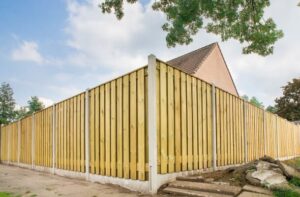The Economy of El Cajon, California
Introduction
El Cajon is a city in San Diego County, California with a population of around 103,000 residents. Once a mainly agricultural community, El Cajon has transformed into a diverse suburban city over the past few decades. The economy of El Cajon has gone through changes as well, shifting away from agriculture and more towards retail, healthcare, and other service industries. Let’s take a closer look at the key aspects of El Cajon’s economy today.
Major Industries and Employers
Healthcare
Healthcare is a major employer in El Cajon today. The two largest healthcare providers in the city are Sharp Grossmont Hospital and Kaiser Permanente San Diego Medical Center. Combined, these hospitals employ over 5,000 people. Many medical offices and clinics have also opened up around these hospital campuses. Nurses, doctors, technicians, and other healthcare workers comprise a sizable segment of El Cajon’s workforce.
Retail
Retail is another big employer in El Cajon. The city has several major shopping centers, including Parkway Plaza, which is home to major chains like Macy’s, JCPenney, and Target. Many restaurants, banks, grocery stores, gas stations, and auto dealerships also provide retail jobs. Major retailers like Walmart, Ross, Lowe’s, and The Home Depot have locations in El Cajon. The city’s proximity to San Diego and location near two major freeways has made it an attractive retail hub.
Manufacturing
Although not as robust as in past decades, manufacturing still plays a role in El Cajon’s economy. Major manufacturers in the city include Hunter Douglas window coverings, PEP Sticks pepper spray products, and Mitchell Repair Information auto repair software. Many smaller machine shops, plastics companies, and light manufacturers are also located in the city’s industrial parks. While manufacturing employment has declined due to automation and globalization, it still provides middle-class jobs for those without a college degree.
Government
As the seat of San Diego County’s second largest city, El Cajon has a sizable government workforce. The city government itself employs over 1,000 workers across departments like police, fire, public works, parks and recreation, and administration. Another major employer is the El Cajon Superior Courthouse, part of California’s court system. The U.S. Department of Veterans Affairs (VA) also has an outpatient clinic in El Cajon providing healthcare services to armed forces veterans.
Major Business Parks and Commercial Areas
El Cajon has several business parks and commercial areas that are major centers of employment in the city:
Parkway Plaza
This large regional shopping mall located near I-8 is home to over 150 stores, restaurants, and entertainment options. Major department stores and retail chains have stores in Parkway Plaza. It attracts shoppers from across East County.
El Cajon Downtown
Once in decline, downtown El Cajon has undergone major revitalization in recent years. It now boasts restaurants, cafes, boutiques, antiques stores, and professional services offices. A farmers market and outdoor events attract visitors.
Knox Professional Center
This business park near Parkway Plaza contains many medical, legal, real estate, insurance, and other professional services offices. The 150,000 square foot complex is home to over 50 businesses.
Rea Business Park
Located near I-8, this industrial park contains manufacturing, warehousing, R&D, and logistics companies in three buildings totaling over 300,000 square feet. Major tenants include mail presorting business DDD Company and window covering manufacturer Hunter Douglas.
Westfield Parkway
This shopping center located along I-8 has big box stores like Walmart, Lowe’s, and Ross along with other major retailers, restaurants, and a movie theater. It attracts shoppers from around the region.
Real Estate and Housing
The median home price in El Cajon is around $525,000 as of late 2022. Home values have risen over 60% in the last decade, but remain more affordable than coastal areas of San Diego County. The local housing stock consists of a mix of older properties built from the 1950s-1970s as well as newer construction. Rental prices have also increased in recent years, with current average rents around $1,800-2,000 per month.
While rising home values and rents have been a challenge for some long-time residents, El Cajon remains one of the most reasonably priced areas to live in San Diego County. The city’s housing stock caters to a range of income levels, from entry-level condos to executive homes. A large proportion of residents own their homes compared to renting.
Major residential developments in El Cajon include:
- Maplewood Apartments – 196-unit complex completed in 2020
- Cornerstone Apartment Homes – 250 luxury units completed in 2021
- Horizon at East Hills – 189 single family homes completed in phases 2007-2020
- Kendall Manor – 55 and up senior living community opened in 2017
Overall, El Cajon provides a range of housing options to support the local workforce across income levels and demographic segments.
Economic Development Outlook
El Cajon’s economic development strategy focuses on the following areas to support continued growth:
Supporting Existing Industries
The city aims to help major industries like healthcare, manufacturing, and retail thrive through workforce training programs, permitting assistance, infrastructure upgrades, and other initiatives. Keeping core job-providing sectors healthy is vital.
Revitalizing the Downtown
Bringing new vibrancy to downtown El Cajon through events, public art, amenities, and infill development is a priority. More housing, offices, shops, and restaurants are planned.
Attracting Innovative Companies
El Cajon wants to complement its traditional industries by attracting more technology firms and startups. The city’s fiber optic network, business incentives, and lower costs compared to coastal communities make it appealing.
Improving Infrastructure
Upgrading roads, utilities, public facilities and the like makes El Cajon more attractive for business investment and expansion. Recent projects include a new police headquarters, fire stations, and sports complex upgrades.
Conclusion
While no longer just a farming town, agriculture still plays a role in El Cajon’s economy via nurseries and animal feed suppliers. Other major elements today include healthcare centered around two hospitals, retail anchored by the expansive Parkway Plaza mall, manufacturing plants that produce goods locally, and government centered in the civic center.
A diverse workforce in fields like education, construction, hospitality, and more round out the city’s economic portrait. With affordable housing, quality schools, recreation amenities, and a pro-business climate, El Cajon seems poised for continued prosperity in the years ahead. The city has evolved into a well-rounded economy and community in San Diego’s East County region.
Service Area
East El Cajon (91919, 92021)
Downtown El Cajon (92020)
Fletcher Hills (92020)
Rancho San Diego (92019)
Casa de Oro (92019)
Bostonia (91919)
Granite Hills (92019)
Pepper Drive (92020)
Lakeside (92040)
Parkway (92020)
Emerald Hills (92020)
West El Cajon (92020)
Fletcher Peak (92020)
Anderson (92020)
Wells Park (92020)
Los Coches Adobe (92019)
Greenfield (92021)
Lexington Hills (92020)
Singing Hills (92019)
Mt Helix (92040)
Hours
Monday: 9:00 AM – 5:00 PM
Tuesday: 9:00 AM – 5:00 PM
Wednesday: 9:00 AM – 5:00 PM
Thursday: 9:00 AM – 5:00 PM
Friday: 9:00 AM – 5:00 PM
Saturday: 9:00 AM – 5:00 PM
Sunday: 9:00 AM – 5:00 PM
Contact Us.
Get Solutions For All Fencing Services
Every day from
9:00 — 5:00
Call to ask any question





